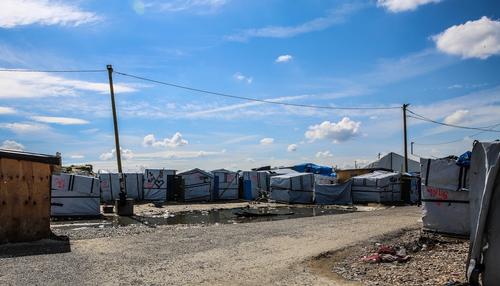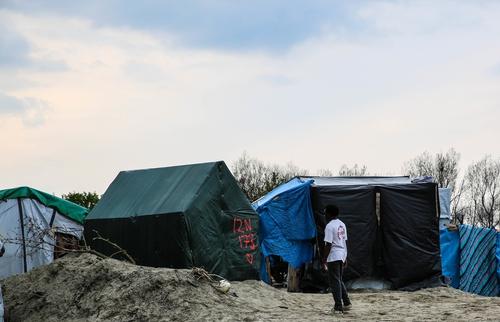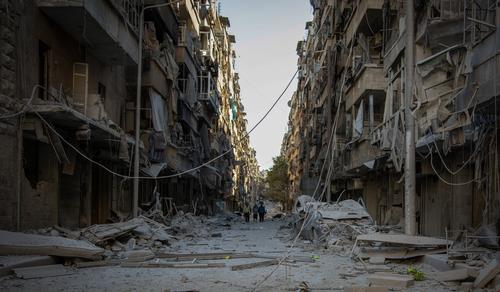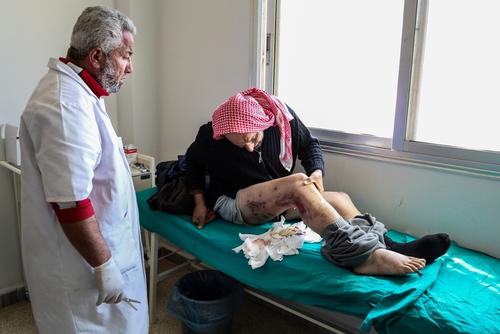Prospects have seldom felt this grim for many of the migrants living in the notorious Calais 'Jungle'. Yet another winter is on the horizon. The French government has vowed to shut the camp down once and for all. Yet another barrier, a wall, appears set to go up. And just this week, residents of the port city of Calais held demonstrations and set up roadblocks, demanding that the camp be razed.
And even though assistance to the camp appears to have thinned, people like Abdo, a 25-year-old Syrian, are still making their way here.
“There are many problems in the Jungle because of the high number of people living here now. And on top of that, France wants to shut the camp down. But where will we go?” says Abdo, who arrived in Calais just nine days ago. “They can’t just press a button and make us disappear.”
Abdo, who is wearing an orange T-shirt with “I heart UK” written across the chest, puffs nervously at his cigarette as he recalls his escape to Europe. He fled the war in his country in 2012 for the relative safety of Egypt, but like many other Syrians he found himself pushed to the margins of society after President Abdel Fattah al-Sisi took over in 2014.
After he gave up on life in Egypt, he left for neighbouring Libya, and took his chances in the Mediterranean Sea – even though more than 3,000 people have gone missing in the water since the start of 2016.
And, he says, more people are coming, even though attitudes towards migration are fast changing in Europe.
“In Libya, people are literally queuing up in Zuwara and Sabratha,” he says, referring to two coastal cities that migrants leave from on board rickety boats operated by smugglers.
“Everyone I met when I was in Zuwara wanted to go to Europe. Everyone has somewhere they want to be in Europe. And Calais is one of the places are aiming for.”
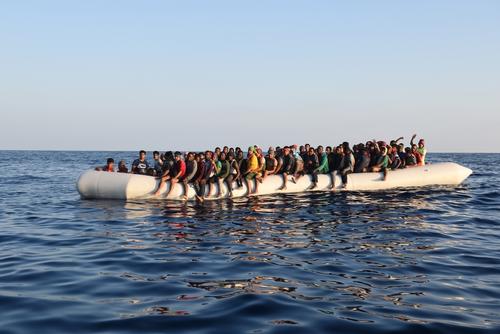
“People will continue to risk it”
Ahmad, a 22-year-old from Sudan, has only been in the Jungle for a week. Along with 140 others, he crossed the Mediterranean on a dinghy, and he says it was thanks to an MSF boat that rescued them that he survived.
“In Libya, I saw Sudanese, Nigerians, Senegalese, Moroccans, Chadians, Bangladeshis, Afghans, Ghanaians, Gambians, Eritreans and Ethiopians. There were many men, a lot of women, many of them pregnant, and children. However dangerous it is, people will continue to risk it and come,” says Ahmad, who is wearing a necklace with the colours of the Rastafarian flag.
Ahmad describes being made to work “like a slave” in Libya, with barely any pay. “And the war in Libya is awful. There is no security for anybody. Anyone can kill you at any time,” he says.
“For us, it isn’t about how rough the sea is or how tough conditions are when we get here. It’s about how desperate we are back home. That’s what pushes us to get on that boat.”
For us, it isn’t about how rough the sea is or how tough conditions are when we get here. It’s about how desperate we are back home. That’s what pushes us to get on that boat.Ahmad, 22-year-old from Sudan
Days after Calais’ farmers and truck drivers took to the streets to demand the immediate closure of the camp, new arrivals were still adding to the constellation of tents in the Jungle. Every evening since the protests, police have reportedly upped their use of tear gas, making life even harder for those sheltering there.
“I used to be an interior decorator but the war in Libya got so bad I had to leave. There is only life there for people who are members of armed groups. I was lucky at sea because the boat I was on was rescued by MSF,” said Abu Eman, a 42-year-old from Sudan.
“Things are so bad here, particularly since the demonstration on September 5. Every night at 8:30 pm, for no reason, police launch tear gas at us. At that time people will be playing football and cricket, not doing anything to harm anyone. I am afraid of the locals, because they want us to leave,” says Abu Eman, who like many others has given up on ever reaching Britain, and now aims to go to the Netherlands instead.

“Nowhere else to turn”
Still, the Jungle provides a much-needed stop-off point, a waiting area of sorts for people who need to figure out exactly what their next step will be in their long, chaotic journey.
Some migrants here have felt the vital aid effort by volunteers drop off in recent months.
“Many volunteers who used to come here from all over Europe have stopped coming. That makes me very sad. Even people I had developed a friendship with have stopped coming. Maybe they’re bored of us? Maybe the Jungle has exhausted them, just like it’s exhausted us?” wonders Mubarak, an 18-year-old Sudanese who arrived in Calais last year.
But for some like 15-year-old Ismail from Afghanistan, there is literally nowhere else to turn. He arrived this week, after traveling through Iran, Turkey, Serbia, Hungary, Bulgaria, Austria, Italy and France.
“In the forest in Bulgaria, where I was trapped for three days, police shot at us. Turkish police also shot at us. In Iran I was detained and tortured. In Serbia I was beaten by residents. The road from Jalalabad to Calais took me three months,” said Ismail, all the innocence of childhood wiped from his gaze.
He is desperate to reach his father in London. Though he is a British citizen, he has been unable to secure family reunion for his son, who is a minor, because like many others born in conflict-torn nations, he does not have a birth certificate.
“I don’t know anything about this life except sadness. I don’t remember a single good day in this life,” he said, as he pitched his tent in the Jungle’s rough soil.



